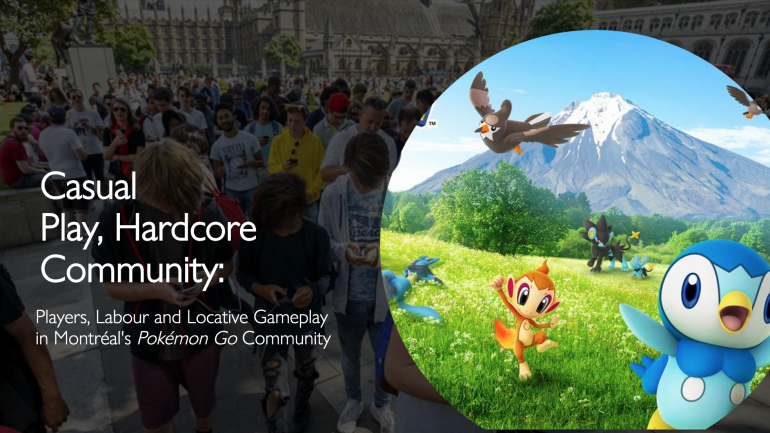
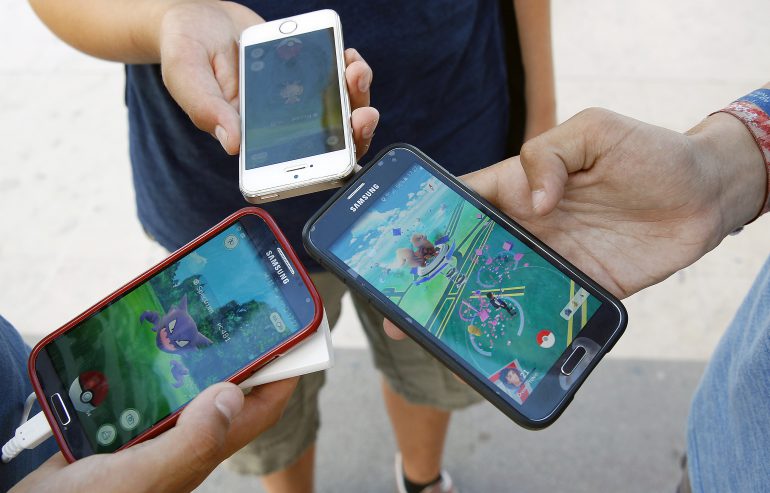
Extended Abstract
This 2018 project explores the local communities of play that have formed and continue to thrive in Montréal, Canada since the July 2016 launch of the location-based mobile game, Pokémon Go. Over the last two and a half years, Pokémon Go has formed localized communities and collaborative networks, not only on platforms such as Facebook and Discord but also in physical spaces where pervasive play converges with real-world locations and social interactions. Though the initial global media attention and public 'craze' surrounding Pokémon Go has waned since its release, the community has flourished in both local and global social ecosystems which were created and moderated by players themselves.
By interviewing and shadowing three prominent members of the local Pokémon Go community, I explored how ‘hardcore’ players actively engage in place-making practices through meaningful movement within urban spaces, participate in community moderation practices, define ‘acceptable’ forms of play, and form collaborative social relationships.
As Pokémon Go is also a location-based game, it generates hybrid experiences of place and presence by requiring players to integrate their own situated and embodied perceptions of the physical world with that mapped on their mobile devices. By using a player’s location to track their physical movements in the game using GPS functionality, Pokémon Go creates a bridge between players’ physical presence and that of their digital avatars. As a result, players engage in “emergent place-making practices” (9) where locations in the real world are imbued with meaning created by both players and the positioning of interactive features marked by Poké-Stops, Gyms, raids and spawn patterns. Hjorth and Richardson have described critical cartography as “the idea that we shape maps and our geo-cultural terrain as much as they shape us” (5). They argue that as “media become more mobile and playful ... we increasingly interweave [the] everyday experience of place with playful virtual environments” which influence the daily movements and actions of players. On both local and global levels, Pokémon Go has also transformed physical spaces through the presence of players in previously liminal and underused spaces. In the case of Montréal, both Cabot Square and Concordia University’s Engineering, Computer Science and Visual Arts Integrated Complex (EV Building) are two examples of spaces that have been (and still are) heavily populated with members of the Pokémon Go community who utilize them for both socialization and gameplay. While players’ goals, habits and play-styles can vary in many ways, local communities and their communal spaces have become integral to both gameplay and daily routines.
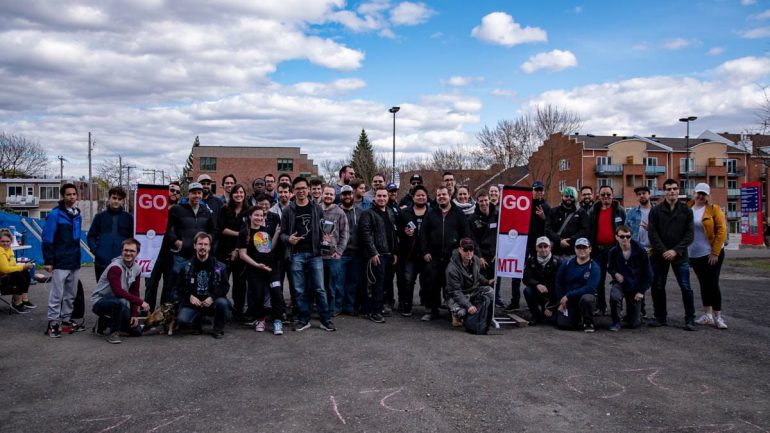
F2P mobile games, like Pokémon Go have largely been associated with a form of gaming called ‘casual’ which are defined as different from ‘hardcore’ games because “1) their fiction preference tends to be positive, 2) casual games require less initial knowledge to play, and 3) they demand lower time investments” (Nieborg, 4). Yet Jesper Juul notes, that casual games “allow us to have a meaningful play experience within a short time frame, but do not prevent us from spending more time on a game”, meaning that ‘casual’ games can actually involve the same kind of time commitment, if not more, as traditional ‘hardcore’ games (9). Moreover, because mobile gameplay often involves the “shifting modalities of place, presence, and being-in-the-world”, it is punctuated by a sense of interruptibility, creating a form of ‘play’ that extends beyond the limits of the game and mobile screen (Hjorth & Richardson, 18). Therefore, in the case of Pokémon Go, ‘playtime’ also includes players’ social and research endeavours as they take on the responsibilities of moderating tensions between players, creating and distributing informative documents and visual content, and managing online groups and chats.
The responsibility of community moderation has been largely adopted by local players as a result of Niantic’s notorious unreliability and unresponsiveness to players’ demands and questions. One of the players I interviewed explained that in 2017, she and many other players around the world collectively began organizing an event on the third Saturday of every month (see image below) which was based off a pre-existing event in Niantic’s 2012 mobile game, Ingress. After noticing that the event was gaining popularity amongst the Pokémon Go community, Niantic created an official monthly in-game event called ‘community day’ where select rare Pokémon spawn for several hours and players can enjoy a variety of perks and bonuses.
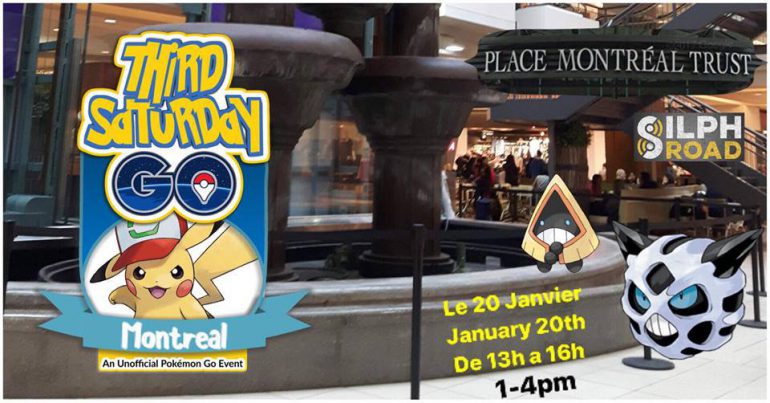
The (unpaid) labour that players put into both the game and community can, therefore, become a source of inspiration for the developers who can ultimately gain financial profit from initiatives placed forth by local communities. Further, while the players interviewed for this paper engage with the local community through online group moderation, event organization and game-knowledge distribution, they have also had to take on the emotional labour of remaining impartial by performing “diplomatic apolitical subjectivities to mediate a range of problematic user behaviors” (Kerr & Kelleher, 190) when dealing with toxic local players, rulebreakers and defining acceptable gameplay styles. Yet unlike regular community managers who can mask their identities or ‘play a role’ in order to protect themselves, the very nature of Pokémon Go, where those who are moderating the community are also out playing with that same community, puts those trying to ‘keep the peace’ in vulnerable and potentially precarious positions, with one of my interviewees describing having received verbal threats that almost led him to getting local police involved.
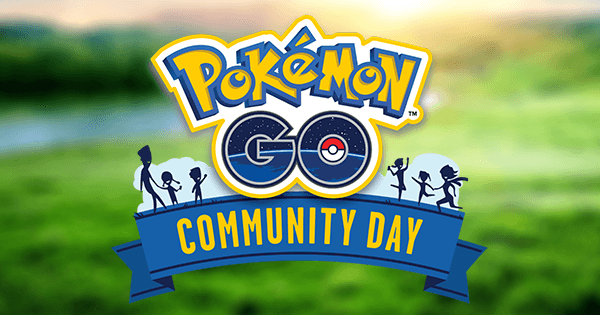
Players who engage in community moderation and socialization have had a major impact on both the formation and expansion of local and global communities, simultaneously creating more entertaining opportunities for play through the organization of events, while also ensuring that local members ‘play by the rules’ and interact with other players in productive and positive ways. The extensive ways that players engage with and beyond Pokémon Go therefore makes it more than just “a casual mobile game” for while it can be played in the midst of other daily activities, “it also explicitly intervenes with and modifies those activities and relations” (Hjorth & Richardson, 5) and has formed well-established communities on both local and global scales.
Works Cited
Hjorth, Larissa, and Ingrid Richardson. Gaming in Social, Locative and Mobile Media. Palgrave Macmillan UK, 2014. E-book.
———. "Pokémon GO: Mobile media play, place-making, and the digital wayfarer." Mobile Media & Communication 5, no. 1 (2017): 3-14. SAGE Journals Online.
Juul, Jesper. A Casual Revolution: Reinventing Video Games and Their Players. Cambridge, MA: MIT Press, 2010.
Kerr, Aphra, and John D. Kelleher. "The Recruitment of Passion and Community in the Service of Capital: Community Managers in the Digital Games Industry." Critical Studies in Media Communication 32, no. 3 (August 2015): 177-92. https://doi.org/10.1080/15295036.2015.1045005.
Nieborg, David B. "Crushing Candy: The Free-to-Play Game in Its Connective Commodity Form." Social Media + Society, Fall 2015, 1-12. https://doi.org/10.1177/2056305115621932.
